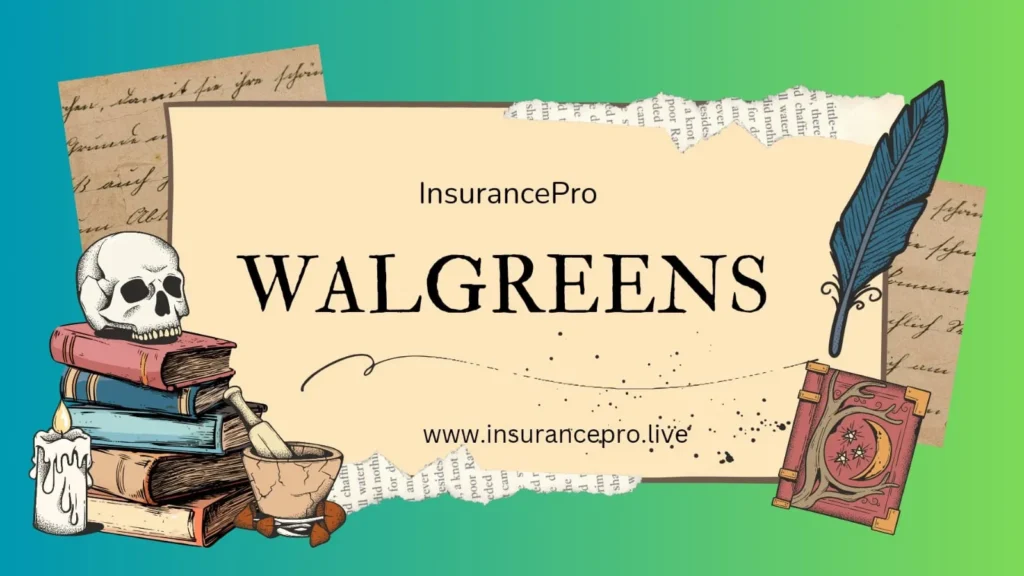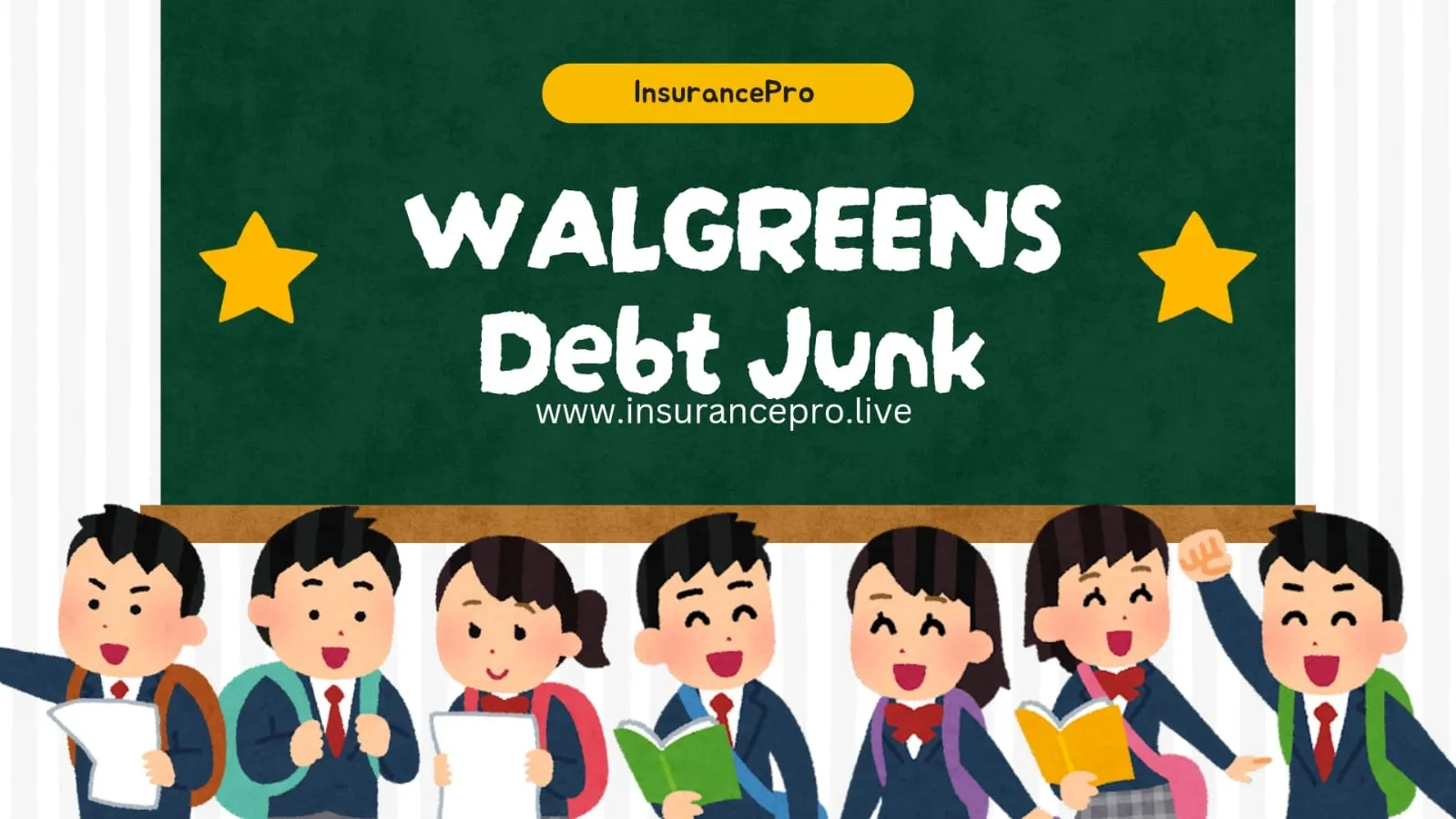Have you heard people talking about Walgreens debt junk and calling it junk. If you’re wondering what this means and why it matters, you’re in the right place. Let’s dive into this topic and break it down so it’s easy to understand.
What is Walgreens?
First, let’s talk about Walgreens debt junk. It’s a big company that runs **drugstores** all across America. You’ve probably seen their stores – they sell medicine, snacks, beauty products, and lots of other things. Walgreens has been around for a long time and is a well-known name in many neighborhoods.
What is Debt?
Before we get into Walgreens’ debt, let’s understand what debt means. **Debt** is when someone owes money to someone else. It’s like when you borrow $5 from a friend and promise to pay it back later. Companies can have debt too, but usually for much bigger amounts of money.
Why Do Companies Have Debt?
You might wonder why a big company like Walgreens would need to borrow money. Here are some reasons:
1. To grow their business (like opening new stores)
2. To buy other companies
3. To have extra cash for unexpected expenses
4. To pay for big projects or improvements
Having some debt is normal for big companies. It’s only a problem if they have too much debt or can’t pay it back.
Now, let’s talk about the word “junk” that people are using. In the world of money and business, **”junk” debt** doesn’t mean the debt is worthless. Instead, it means the debt is **riskier** than other types of debt. Here’s what that means:
The company might have a harder time paying back the debt
There’s a higher chance the company could miss payments
Investors who buy this debt might not get their money back
It’s called “junk” because it’s seen as less safe than other types of debt.
Why is Walgreens’ Debt Being Called “Junk”?
Recently, some people who look at company finances very closely (we call them **credit rating agencies**) said that Walgreens’ debt is now in the “junk” category. But why?
1. **Business Challenges**: Walgreens has been facing some tough times in its business.
2. **Lots of Debt**: The company has borrowed a lot of money over the years.
3. **Changes in Healthcare**: The way people get healthcare and medicine is changing, which affects Walgreens.
4. **Competition**: Other companies are making it hard for Walgreens to make as much money as it used to.
All these things together make some people worry about whether Walgreens can easily pay back all the money it owes.
What Does This Mean for Walgreens?
When a company’s debt is called “junk,” it can cause some problems:
1. **Higher Interest**: If Walgreens wants to borrow more money, it might have to pay higher interest, like when you have to pay extra when you borrow something.
2. **Worried Investors**: People who own parts of Walgreens (called shareholders) might get worried and sell their shares.
3. **Harder to Borrow**: It might be tougher for Walgreens to borrow money in the future.
4. **Reputation**: Some people might think Walgreens is in trouble, even if it’s still a big, successful company.
But it’s not all bad news. Let’s look at the bigger picture.

Is Walgreens Really in Trouble?
Even though the debt being called “junk” sounds scary, it doesn’t mean Walgreens is going to disappear. Here’s why:
1. **Still a Big Company**: Walgreens is huge and makes a lot of money every year.
2. **Plans to Improve**: The company is working on ways to do better and make more money.
3. **Important Service**: People still need the medicines and other things Walgreens sells.
4. **Smart People in Charge**: The company has leaders who are trying to fix the problems.
So, while it’s a serious situation, it’s not the end of the world for Walgreens.
You might wonder how Walgreens ended up with so much debt. Here are some reasons:
1. **Buying Other Companies**: Walgreens spent a lot of money buying other big companies, like parts of Rite Aid (another drugstore).
2. **Changing Their Stores**: They’ve been updating their stores and adding new services, which costs a lot.
3. **Tough Competition**: Other companies like Amazon are making it harder for Walgreens to make money.
4. **Healthcare Changes**: The way people get and pay for healthcare has been changing, which affects Walgreens’ business.
All these things together led to walgreens debt junk borrowing more money over time.
What is Walgreens Doing About It?
Walgreens isn’t just sitting around doing nothing. They’re working on fixing the problem:
1. **Cutting Costs**: They’re looking for ways to spend less money.
2. **Closing Some Stores**: They’re shutting down stores that aren’t making enough money.
3. **New Services**: They’re trying new things, like adding more health services in their stores.
4. **Partnerships**: They’re working with other companies to bring in more customers.
5. **Selling Parts of the Business**: They might sell some parts of the company to get more money.
These steps show that walgreens debt junk is actively trying to improve its situation.
How Does This Affect Regular People?
You might be wondering if this “junk debt” thing matters to you. Here’s how it could affect regular people:
1. **Store Changes**: You might see some walgreens debt junk stores close or change.
2. **Prices**: Prices for things at Walgreens might go up or down as the company tries to make more money.
3. **New Services**: You might see new health services offered at Walgreens.
4. **Jobs**: If you or someone you know works at walgreens debt junk, there might be some job changes.
5. **Investors**: If you or your parents own Walgreens stock, its value might change.
For most people, though, you probably won’t notice big changes when you go to walgreens debt junk.
Let’s talk a bit more about these credit ratings. They’re like grades for how well a company can pay back its debts. Here’s a simple way to think about it:
**A, B, C Ratings**: These are good. It’s like getting an A or B on a school test.
**D Ratings**: These aren’t so good. It’s like getting a D on a test.
**”Junk” Rating**: This is below the good ratings, but not the worst. It’s like getting a C- on a really hard test.
Walgreens’ debt just moved from the “good” category to the “junk” category. It’s not great, but it’s not the worst either.
Comparing Walgreens to Other Companies
To understand this better, let’s look at how walgreens debt junk compares to other similar companies:
1. **CVS**: Another big drugstore company. They have a lot of debt too, but it’s not considered “junk” right now.
2. **Rite Aid**: This drugstore company has been having even more trouble than walgreens debt junk.
3. **Amazon**: They’re moving into the pharmacy business and have better-rated debt.
4. **Walmart**: They also sell medicines and have stronger finances right now.
This shows that while walgreens debt junk is facing challenges, it’s not the only company dealing with tough times.
The Bigger Picture of Retail and Healthcare
walgreens debt junk situation is part of a bigger change happening in stores and healthcare:
1. **Online Shopping**: More people are buying things online, which is hard for stores like Walgreens.
2. **Healthcare Changes**: The way people get healthcare and medicine is changing.
3. **Big Companies Competing**: Giant companies like Amazon are getting into the pharmacy business.
4. **Cost of Medicine**: People are worried about how much medicines cost.
Walgreens is trying to find its place in this changing world.
What Could Happen in the Future?
While we can’t know for sure what will happen, here are some possibilities for walgreens debt junk:
1. **Bounce Back**: They could fix their problems and their debt could become “good” again.
2. **Big Changes**: They might change a lot about how they do business.
3. **Sell the Company**: Another big company might buy walgreens debt junk.
4. **More Trouble**: If things don’t get better, they could have more serious problems.
Most experts think Walgreens debt junk will keep working to improve its situation.

How to Understand News About Company Debt
When you hear news about company debt, here are some tips to understand it better:
1. **Don’t Panic**: Just because a company has “junk” debt doesn’t mean it’s going out of business.
2. **Look at the Whole Story**: Try to understand why the debt is considered risky.
3. **Check Multiple Sources**: Don’t just listen to one person’s opinion.
4. **Think Long-Term**: Companies can have ups and downs over time.
5. **Remember It’s Complicated**: There’s usually no simple answer to big financial questions.
These tips can help you make sense of news about walgreens debt junk or other companies.
Lessons We Can Learn
Even though this is about a big company, there are lessons we can all learn:
1. **Borrowing Has Risks**: Whether you’re a person or a big company, borrowing money can be risky.
2. **Changes Can Be Hard**: When the world changes, sometimes it’s hard to keep up.
3. **Planning is Important**: It’s good to have plans for when things get tough.
4. **Reputation Matters**: How others see you (or a company) can affect your opportunities.
5. **There’s Always Hope**: Even when things look bad, there are usually ways to make them better.
These are good things to remember for your own life too!
Conclusion walgreens debt junk
Walgreens’ debt being called “junk” is a big deal, but it’s not the end of the story. Here are the key things to remember of walgreens debt junk.
1. Walgreens is facing some tough challenges with its debt.
2. The company is still big and important, and it’s working on fixing the problem.
3. This situation is part of bigger changes in stores and healthcare.
4. Most of us probably won’t see big changes when we go to walgreens debt junk.
5. There are lessons we can all learn about money and business from this situation.
Whether you’re interested in business news or just curious about what’s happening with a store you know, understanding this situation can help you make sense of other financial news too.
Remember, big companies like walgreens debt junk have ups and downs. This might be a downtime for them, but they’re working hard to turn things around. Keep an eye on the news; you might see how this story develops over time.
Stay curious, keep learning, and don’t be afraid to ask questions about the financial news you hear. Understanding these big ideas can help you make smart decisions about money in your own life too!






